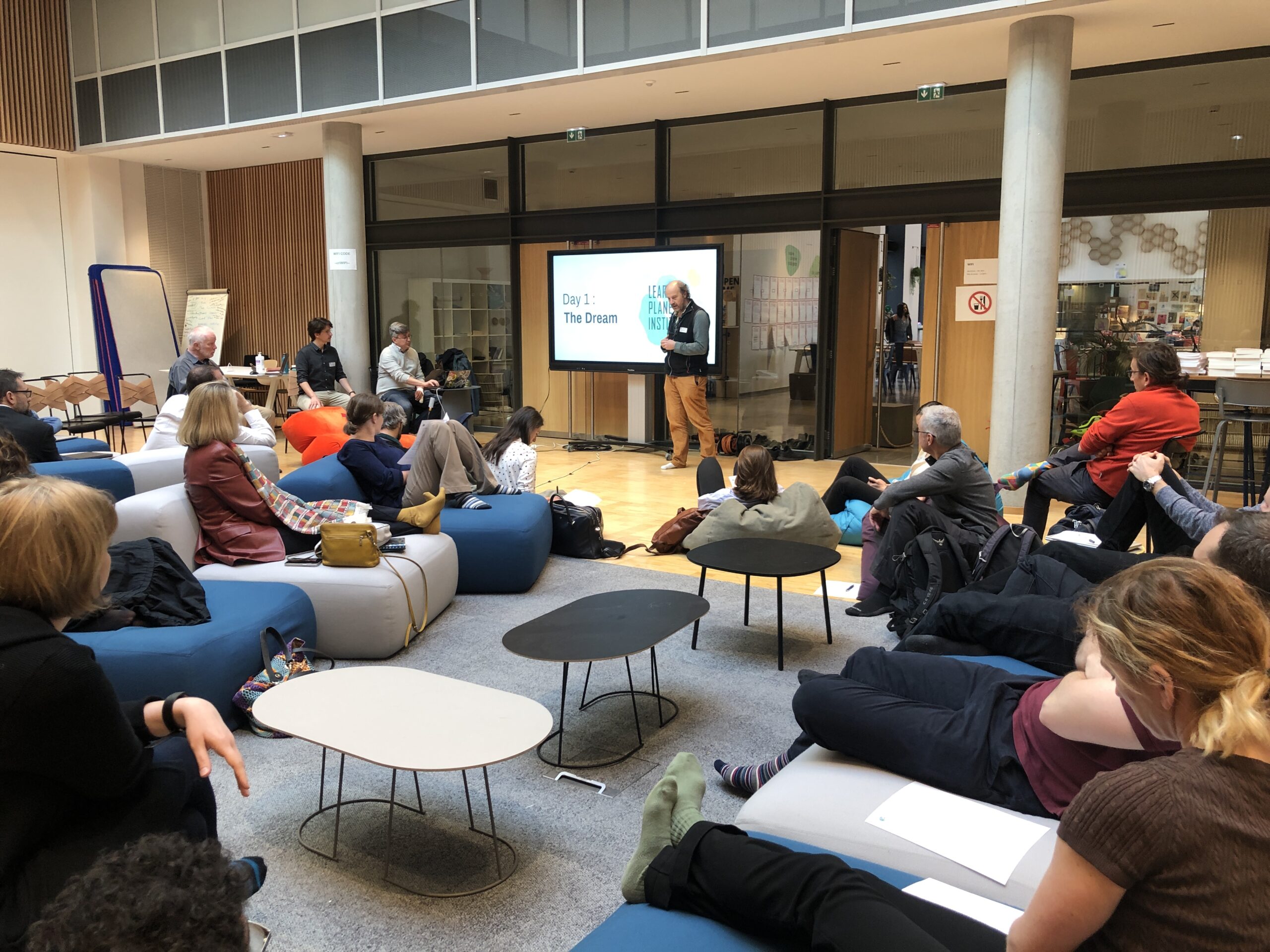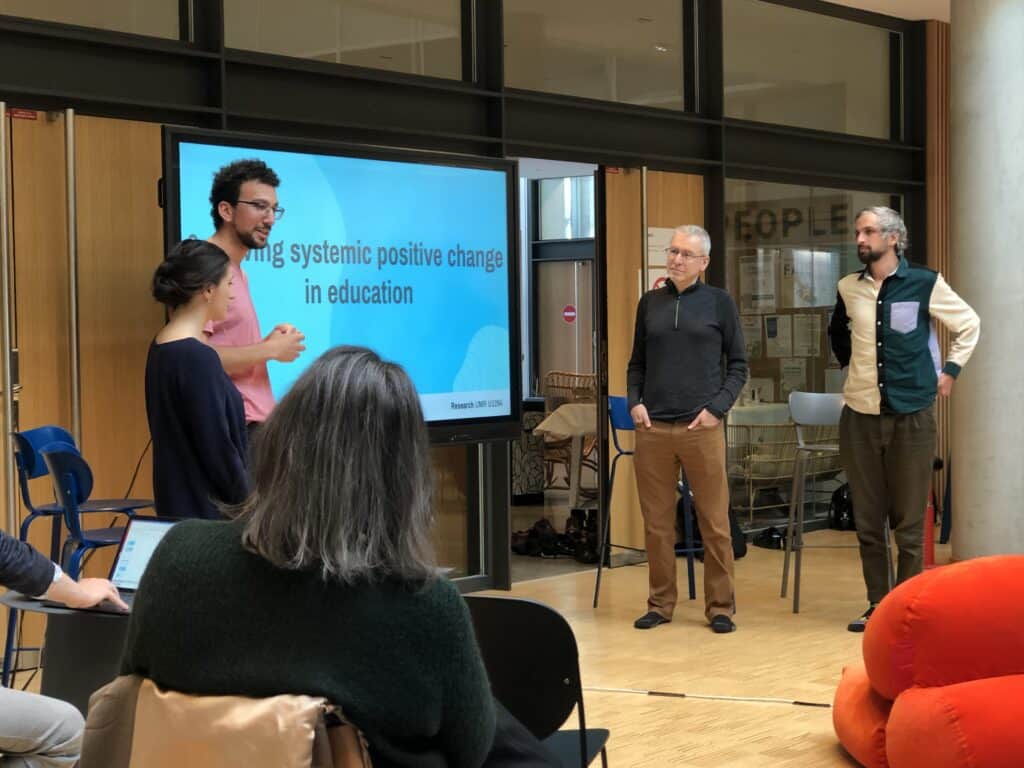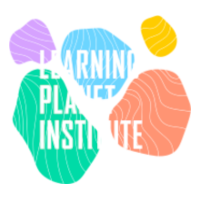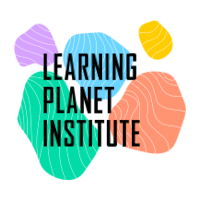In April of 2022, the Learning Planet Institute convened 35 experts, including researchers, entrepreneurs, students, and teachers for a workshop on collective intelligence and learning. They identified themes, challenges and potential solutions on intersection of the 2 domains and collaboratively wrote an extended opinion piece, now published in the journal Human Computation.
Abstract
Learning, defined as the process of constructing meaning and developing competencies to act on it, is instrumental in helping individuals, communities, and organizations tackle challenges. When these challenges increase in complexity and require domain knowledge from diverse areas of expertise, it becomes difficult for single individuals to address them. In this context, collective intelligence, a capacity of groups of people to act together and solve problems using their collective knowledge, becomes of great importance.
Technologies are instrumental both to support and understand learning and collective intelligence, hence the need for innovations in the area of technologies that can support user needs to learn and tackle collective challenges. Use-inspired research is a fitting paradigm that spans applied solutions and scientific explanations of the processes of learning and collective intelligence, and that can improve the technologies that may support them.
Although some conceptual and theoretical work explaining and linking learning with collective intelligence is emerging, technological infrastructures as well as methodologies that employ and evidence that support them are nascent. We convened a group of experts to create a middleground and engage with the priorities for use-inspired research. Here we detail directions and methods they put forward as most promising for advancing a scientific agenda around learning and collective intelligence.
The Advanced Workshop on “Research & Development challenges at the interface of Learning and Collective intelligence” was organised as part of the process to strengthen the position of the Learning Planet Institute as a middleground, a space that brings together a range of stakeholders that carry diverse perspectives on the intersection of learning and collective intelligence.

Prompted by questions such as “What is your vision for the field in the next 5-10 years” and “What cannot be done yet (open questions)?”, the participants spent 4 days first identifying major challenges on the intersection of learning and collective intelligence, and then outlining possible research and development-based solutions.
They focused on use-inspired research approaches, which can address both needs for knowledge production and technological advancement. Through a series of focused discussions, using different facilitation methodologies including the World Cafe approach, they converged onto 4 different major themes and a total of 9 specific challenges. Not meant as an exhaustive collection, this list puts forward the promising directions and methods for advancing a scientific agenda around learning and collective intelligence.
- Processes, goals, and values of learning in the 21st century
- Challenge 1. How to make people more engaged in learning?
- Challenge 2. How to develop “learning how to learn” skills?
- Challenge 3. How to retrain the needed workforce for the present and future jobs?
- Technology-augmented collective learning
- Challenge 1. How to connect learners?
- Challenge 2. How to combine learning with activism?
- Challenge 3. How to represent the learning processes?
- Evaluation and assessment in informal learning
- Challenge 1. How to achieve equitable, fair, accessible evaluation and assessment in informal learning?
- Challenge 1. How to achieve equitable, fair, accessible evaluation and assessment in informal learning?
- Driving systemic positive change in educating citizens
- Challenge 1. How to include all kinds of learners as partners and agents of change in shaping the education system?
- Challenge 2. How to create an agile learning ecosystem which is adaptive to all stakeholders’ voices in the face of shifting societal challenges?

The contributions of the participants to this workshop helped the Learning Planet Institute to show its collective efforts in print and to put some of the conclusions into action itself. The Institute strongly believes that the potential of collective intelligence and learning, as transformational drivers in multiple societal and industrial domains, is enormous and that this work could serve as a catalyst, inspiring others, and setting the bases of the alignment that is needed to assure positive outcomes.
Finally, the Learning Planet Institute is aware of the ever-transforming nature of collective phenomena, and thus submits this paper to the broader community as a living document, welcoming future adjustments, improvements, and all open contributions.
Learn more about:
- The R&D hub at the Learning Planet Institute
In order to promote the transformation of learning—and thus to have a positive impact on the planet—the R&D hub uses research and technology to develop projects focusing on artificial intelligence, learning and collective intelligence, and frugal innovation. These projects are thought of and conducted according to their final purposes.
R&D is a fundamental, interdisciplinary activity. It fuels and supports the four other main activities of the Institute (Education, Digital Ecosystems, International Alliance and Transformation of Organisations).
The Learning Planet Institute encourages and implements an inclusive and open R&D: everyone is a potential researcher.
- The paper
Misevic, D., Atal, I., Bedard, D., Cherel, E., Escamilla, J., Evans, L., Hannon, V., Huron, C., Irrmann, O., Kizilcec, R., Lazega, E., Lemoie, K., Lindner, A., Macedo, M., Mainguy, G., Mann, R., Masselot, C., Michelucci, P., Nikolayeva, I., Ogan, A., Pérez-Sanagustín, M., Pescetelli, N., Poquet, S., Rafner, J., Regester, D., Santolini, M., Sevin, J.-M., Shahaf, D., Sherson, J., Smith, J., Söllner, M., Soulié, F., Taddei, F., Tupikina, L., & Van Der Leeuw, S. (2023). Harnessing collective intelligence for the future of learning – a co-constructed research and development agenda . Human Computation, 10(1), 1-30.
https://doi.org/10.15346/hc.v10i1.141
Cette publication s’inscrit dans le cadre de la Chaire UNESCO « Sciences de l’apprendre », établi entre l’UNESCO et Université Paris Cité, en partenariat avec le Learning Planet Institute.
Les idées et opinions exprimées dans cette publication sont celles des auteurs. Elles ne représentent pas nécessairement les vues de l’UNESCO et n’engagent en rien l’Organisation.






